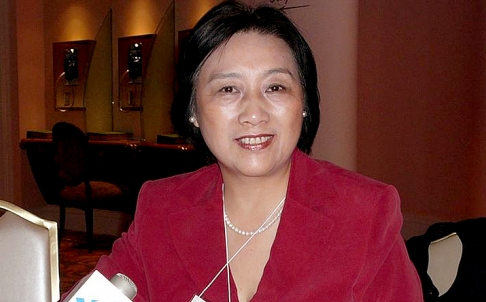For ChinaFile, David Bandurski writes about the current status of journalism in China and Xi Jinping’s efforts to exert tighter controls over the media, including the implementation of “news ethics committees.” He notes a recent reference on the Central Propaganda Department website to newspaper publisher Joseph Pulitzer’s statement that, “A journalist is the lookout on the bridge of the ship of state…He is there to watch over the safety and the welfare of the people who trust him.” Bandurski writes:
The recent adaptation of Pulitzer’s famous phrase accompanied a news report back in September announcing the nationwide establishment of “news ethics committees,” or xinwen daode weiyuanhui. According to the limited details available in Chinese press reports, these committees, to be set up in cities and provinces across the country, will comprise 20 or so members drawn from various government agencies and led by local propaganda offices. They will be charged with fielding complaints about discipline violations in the media, conducting investigations, and determining punitive measures, which will include: orders for rectification and reform, verbal admonishments, demands for public apology, public exposure and condemnation, entry into permanent records of poor conduct, and referral to disciplinary departments.
These tactics are not necessarily new. But their exercise through an added layer of control speaks to the leadership’s strong determination to maintain and intensify press censorship even as the enterprise of journalism migrates to a new generation of digital platforms.
The outward justification for these new institutions has been the appalling state of ethics in Chinese journalism — something no one, it seems, is in a position to deny. China’s media are awash with fake news reports, much of them paid-for news. Journalists routinely accept cash payments (in the form of “transportation fees”) just for showing up to corporate public relations events. In some cases, reporters accept “hush fees” to turn a blind eye to sudden-breaking news stories such as mining accidents or labor disputes. In the most deplorable cases, media engage in “news extortion,” dangling the threat of investigative exposes over the heads of companies in order to coax them into buying advertising. As the September article announcing the news ethics committee rollout said: “The journalism profession faces a crisis of morality and credibility.”
All of this is true.
But when Party leaders talk about moral and professional responsibility, they are really talking about power. [Source]
In an effort to end the practice of “paid-for news,” David Wolf issued a plea in Advertising Age calling on foreign companies to stop participating.
At the University of Nottingham’s China Policy Institute blog, University of Leicester’s Jingrong Tong writes about how financial difficulties for the nation’s news media compounds the challenges they face from the tightened political controls:
Accompanying the decline in news reporting is the severe economic crisis that Chinese news organisations have been facing over the past few years. The wave of closures of newspapers started in 2012 and is forcing news workers to think about the future of China’s traditional news media. Since then one after another commercial metropolitan newspapers have closed down, mainly due to economic deficits. Advertising and circulation revenues have been waning for quite a long time. The income reduction has become severe in recent years. Quite a number of newspapers cannot make ends meet. Those with huge debts just could not go on. Prominent among others are the News Evening (Xinwen Wanbao) and the New Everyday (Tiantian Xinbao) that were shut down in 2014. Although large news organisations have been trying different digital media experiments, very few of them are able to gain financial benefits from this kind of activities. Traditional news media’s difficulty in the media market has produced a number of consequences for journalism. Several of them are related to investigative journalism. Funding for this expensive kind of journalism has been cut. The concern over the relationship between news organisations and other social entities has further stopped them from supporting this type of journalism.
If the story of newspaper economics is similar to that in the West, tight political control exacerbates the situation in China. Over recent years an unfriendly political attitude has developed toward investigative journalism. This hostile attitude has made the situation worse. The media control has been tightened since 2013. A series of political crackdowns has forced news media to stop favouring investigative journalism. The top-down online purge has silenced the online sphere that was formerly quite boisterous. The speech of Xi Jinping about China’s propaganda in the 2013 Propaganda work conference has passed on a warning message for investigative journalism. The latest regulation about the practice of critical reporting clearly and officially limits the practice of investigative journalism. The decline of investigative journalism is an immediate consequence of this tightening. [Source]
One journalist who hasn’t fared well under the tightened controls is Gao Yu, a 71-year-old veteran reporter, who was sentenced in April to seven years in prison on charges of “leaking state secrets.” On Tuesday, the Beijing Higher People’s Court heard her appeal, and her lawyer Mo Shaoping is anticipating she may get a rare sentence reduction. From Verna Yu at The South China Morning Post:
The appeal hearing at the Beijing Higher People’s Court on Tuesday lasted one hour, during which Gao made a statement in her own defence and answered questions from the judge and her lawyers, according to Gao’s other lawyer, Shang Baojun.
Gao was in “reasonable” health and able to cope with the court proceedings, Shang said.
Shang declined to give details of the content of Gao’s defence, saying it was a closed-door hearing and he was bound by confidentiality rules.
Shang said lawyers presented new evidence at the hearing but declined to elaborate. It is rare for a Chinese court to hold an appeal hearing, and a hearing usually indicates a change in the original sentence. [Source]







